10 Hot Emerging Vendors For August 2010

Ready For Prime Time
Step right up and get what may very well be your first look at 10 hot new IT vendors that are exploding onto the scene. Each month CRN profiles 10 new vendors that are looking to shake up the industry in various technology segments, from security to cloud computing, from software to hardware.
These startups know the importance of the channel and are looking to align with valued channel partners to get their names and products out.
Take a look and get introduced to 10 vendors that are ready for prime time.

Strangeloop
Company: Strangeloop
Tech Sector: Networking
Key Product: Strangeloop Site Optimizer
The Lowdown: Strangeloop, founded in 2008, designs, builds, installs and supports hardware and software solutions that accelerate the performance of Web sites and Web-based applications. The Strangeloop Site Optimizer offers enterprises features that work together to provide round-trip reduction, rapid rendering and dynamic browser caching.
The company claims its solution has improved site speed for some clients by 300 percent, increased online conversion rates by as much as 9 percent and facilitated revenue increases of up to 52 percent. The device is intelligent and self-referencing and can learn and adapt in realtime. Two sister applications are a virtual appliance and a cloud service.
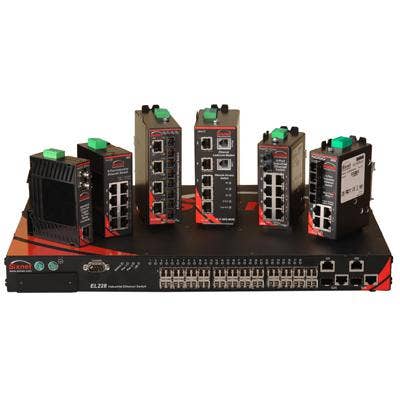
Sixnet
Company: Sixnet
Tech Sector: Networking
Key Product: EL DIN-rail series industrial Ethernet managed switches
The Lowdown: While Sixnet has been around since 1976 as an automation company, the company underwent a massive change in 2005, targeting a new market and reinvigorating its channel with its growing Ethernet switching line. The shift came when the original founders sold 80 percent of the company to a pair of investor groups and moved their focus to industrial Ethernet switching and wireless.
Based in Ballston Lake, N.Y., Sixnet boasts 100 channel partners and targets systems integrators focused on industrial markets. Sixnet's industrial-grade switches and wireless gear fit squarely into emerging markets such as smart grid and in verticals such as manufacturing, oil and gas, utilities and military. The goal is to combine rugged durability with enterprise-class features. All of Sixnet's switches are KEMA-approved and received ABB certifications for use in power substations. In addition, Sixnet offers a full line of industrial wireless and commercial wireless products, recently launching 3G cellular routers and modems.
The company expanded its wireless lines with the acquisition of JBM Electronics in 2009 and Blue Tree Wireless in 2007. CEO Hilton Nicholson joined in 2009 and has networking experience from 3Com.
PerspecSys
Company: PerspecSys
Tech Sector: Security
Key Product: PerspecSys Salesforce.com Edition
The Lowdown: When it comes to cloud computing, security is chief among the concerns. PerspecSys, founded in 2006, is looking to ensure that data never leaves the enterprise and therefore always keeps companies compliant with legislative, regulatory and policy requirements. The Ontario-based company is looking to keep cloud-based data protected through its suite of Cloud Data Governance solutions.
PerspecSys hit the ground running with its first Cloud Data Governance solution, its Salesforce.com Edition, which lets Salesforce users address compliance requirements when using any Salesforce application and the Force.com platform. But PerspecSys isn't stopping with just Salesforce. More editions are expected soon. PerspecSys also offers the PerspecSys PRS Server, PRS Reverse Proxy and PRS MTA Server.
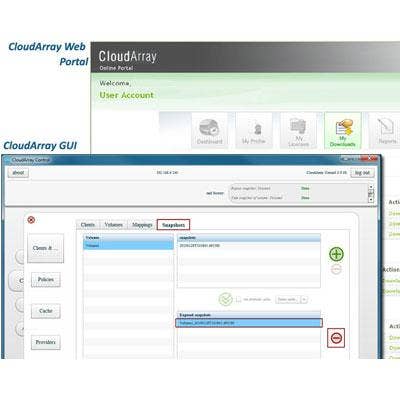
TwinStrata
Company: TwinStrata
Tech Sector: Storage
Key Product: CloudArray cloud storage enablement software
The Lowdown: TwinStrata is a Natick, Mass.-based developer of the CloudArray software for building intelligent storage clouds. CloudArray is a virtual appliance that works in VMware and Citrix environments to add intelligence to public and private cloud storage with features including data replication, backup and restore, archiving, disaster recovery, data availability and security, and elastic capacity to help provide customers with seamlessly managed cloud storage services. CloudArray supports cloud storage providers Amazon Web Services, EMC Atmos Online and AT&T Synaptics. It offers its products through a network of IT service providers, systems integrators and OEMs, and direct to end users.
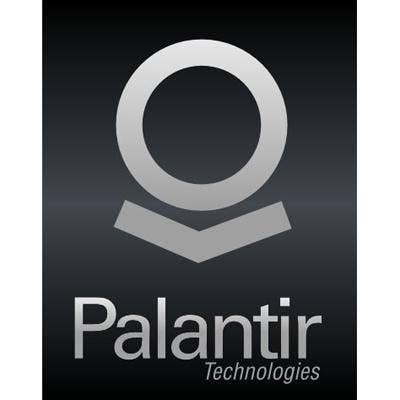
Palantir Technologies
Company: Palantir Technologies
Tech Sector: Business applications
Key Product: Palantir Government, Palantir Finance
The Lowdown: Palantir Technologies offers two platforms to integrate, visualize and analyze information in the government and financial markets, including data that is structured, unstructured, relational, temporal and geospatial. The application stack includes layers of data integration, search and discovery, knowledge management and collaboration and sits on top of legacy database infrastructure, according to the company. The Palo Alto, Calif.-based company was founded in 2004 and has an office in Tysons Corner, Va, as well.

Abiquo
Company: Abiquo
Tech Sector: Virtualization
Key Product: Abiquo cloud management software
The Lowdown: Abiquo just made it to the U.S. in 2010 after spending about four years in Barcelona, Spain. Now based in Redwood City, Calif., Abiquo makes open-source cloud management software. The June 2010 launch of version 1.6 of Abiquo's cloud management software saw the addition of new industry-standard APIs for cloud administration and cloud services consumption, along with adding support for Citrix XenServer. Since Abiquo already supports VMware ESX and ESXi, Microsoft HyperV, KVM, VirtualBox and Xen, the update furthers the company's mission toward a cloud and virtualization ecosystem where private and public clouds interoperate and are vendor-neutral.

Veodia
Company: Veodia
Tech Sector: Networking
Key Product: Veodia
The Lowdown: Count Veodia among companies that see huge potential for video as part of an as-a-service delivery model. Touting itself as "agile video that puts your work in motion," it offers a streaming video Platform-as-a-Service (PaaS) that uses the MPEG-4/h.264 standard and offers the ability to embed streaming video in Web sites and blogs and automatically convert to podcasts, store recorded content in the cloud, and stream to a variety of platforms, including smartphones. It can be sold as either an end-to-end platform or integrated with various other collaboration platforms, such as Jive Clearspace and Cisco's WebEx Connect.
Founded in 2006 as a venture-capital-backed upstart, Veodia last year acquired ScreenToaster, whose screen capture technology lets users capture and share screen activity and gives Veodia an inroad into the consumer marketplace.
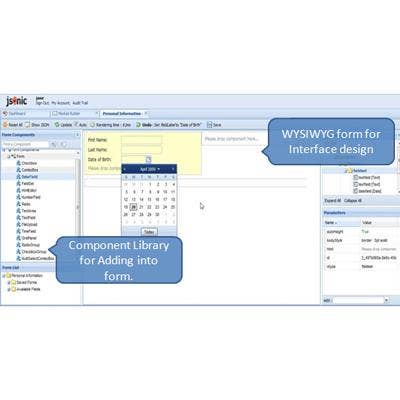
Krawler Inc. (Deskera)
Company: Krawler Inc. (Deskera)
Tech Sector: Software
Key Product: Deskera
The Lowdown: One problem with many Software-as-a-Service applications is that integrating multiple on-demand applications to exchange data can be a chore. That’s an advantage of on-demand software suites, including Krawler’s Deskera, which targets small and midsize businesses with between five and 100 employees.
’That’s our secret sauce,’ said founder and CEO Shashank Dixit of the integration between the CRM, accounting, project management, human resource management, training, leave and attendance management, and other applications that make up the Deskera suite.
Krawler, founded in 2006, is based in Pune, India, and is well-established there and throughout other Asian countries such as Singapore and Malaysia. (The company was ranked No. 52 on the 2009 Deloitte Technology Fast 500 Asia Pacific.) In the U.S., it is based in Sunnyvale, Calif.
Now the company is pushing to expand its U.S. sales -- some 90 percent of new Deskera customers are in North America -- and it’s counting on solution provider partners to help, Dixit said. Channel partners can white-label the on-demand applications with their own brand (Krawler handles the hosting) and sell them to customers in vertical markets, along with implementation and consulting services.
Worldwide the company now has some 200 channel partners and is working to expand its partner ranks in the U.S.

Eye-Fi
Company: Eye-Fi
Tech Sector: Storage
Key Product: Eye-Fi Connect X2 wireless memory cards
The Lowdown: Uploading digital photos and video has gotten a little easier, thanks to Eye-Fi. The Mountain View, Calif.-based company makes memory cards that have an added twist -- built-in wireless capability. Eye-Fi’s Connect X2, for example, looks like your standard 4 GB SD memory card, but it allows users to upload JPEG files and video via 802.11n Wi-Fi. The Connect X2 can upload the photos and video to either users’ systems or to their choice of 25 different social media sites such as Facebook, Flickr and Picassa. The memory card also comes with a space-saving feature that deletes photos and videos once they’ve been safely uploaded so that users don’t run out of memory because the card is clogged with old files. Users can easily organize files into date-based folders, too.
Along with the Connect X2, Eye-Fi, founded in 2005, offers larger SD cards such as the Explore X2 and Pro X2, which both come with 8 GB of memory and more advanced features such as geotagging and automatic Wi-Fi hot-spot uploading.
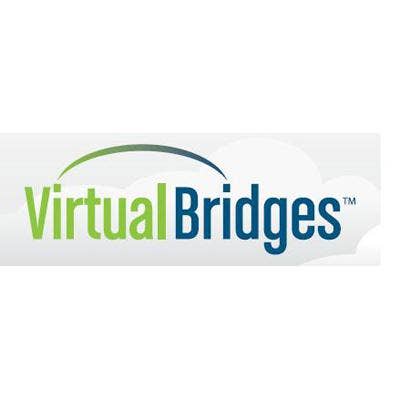
Virtual Bridges
Company: Virtual Bridges
Tech Sector: Software/Virtualization
Key Product: Verde
The Lowdown: VMware may have coined the term VDI (virtual desktop infrastructure), but Virtual Bridges was doing VDI long before it crept into the marketplace vernacular. So says Jim Curtin, founder and CEO of Austin, Texas-based Virtual Bridges, which launched in 2005 using open-source components to virtualize Windows XP desktops.
Virtual Bridges realized at an early stage that the hypervisor would eventually become commoditized, so the company used QEMU (an open-source processor emulator technology) as its base hypervisor technology, and that eventually evolved into KVM. This foundation, Curtin said, allows Virtual Bridges to offer one-third the total cost of ownership of competing virtualization products, as well as easier deployment.
"KVM is actually the first hardware-aware hypervisor technology in the market, which is important because it gives us a tremendous advantage over Xen and ESX," said Curtin. "Those products are not built for the desktop -- they're like a dump truck masquerading as a family car. KVM, on the other hand, is perfectly suited for the desktop."
Virtual Bridges has a "minimal" direct sales force that's designed to bring in reference accounts, according to Curtin. The company does about 50 percent of its business through channel partners currently, and Curtin said the goal is to get that figure to 90 percent. Virtual Bridges works with system integrators, VARs, and large distributors, and IBM and Dell are two of its closest partners.